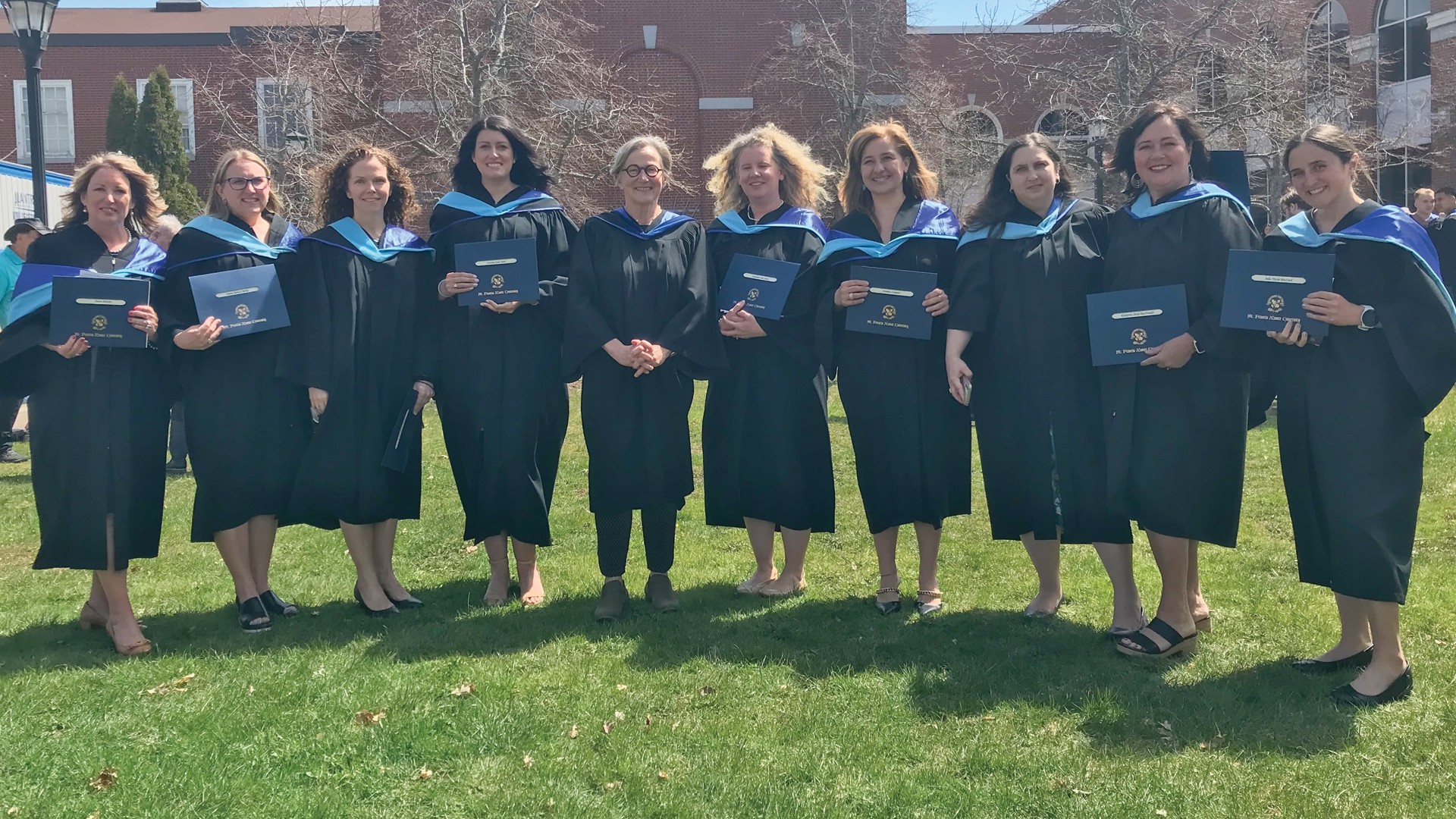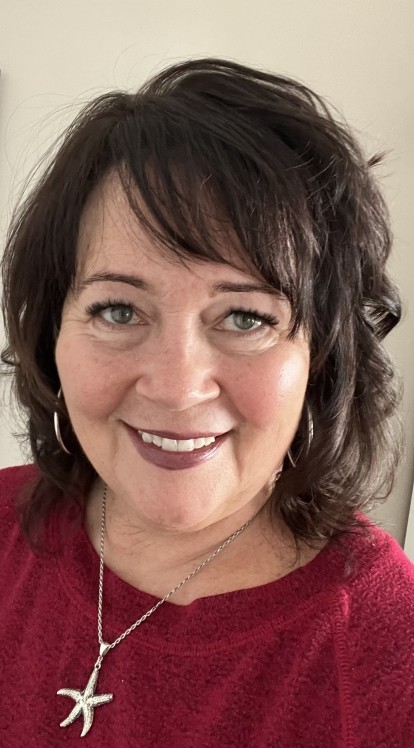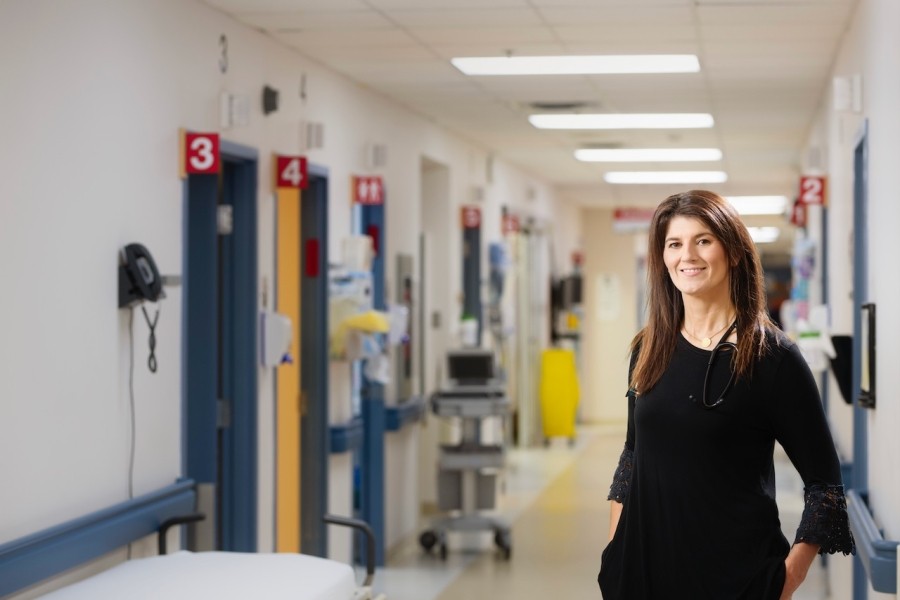
Education needs to grow with the world we’re in, so in 2019, the StFX Department of Adult Education created and launched a part-time, online Master of Education (M.Ed.) program with a Concentration in Adult Education and Health, which has now been transitioned into a Master of Adult Education (M.Ad.Ed) concentration offering.
Participants have come through the doors in droves— nurses, occupational therapists, pharmacists, dietitians, emergency room doctors, homeopathic doctors and more, says program coordinator and StFX adult education professor Dr. Maureen Coady.
Demand has been so high in fact that in January 2024, the department admitted two, full cohorts of 25 students each instead of the one cohort anticipated, and they’ve moved the next cohort from a January 2025 start to this September due to overwhelming interest.
“The boom is a reflection of the fundamental shifts happening in health care,” says Dr. Coady. “There are many more educational roles, and these mid-career health professionals are seeking that training that enables them.”
Dr. Coady says reforms in health care have sparked an explosive growth in graduate programs in health professions education that prepares clinicians for teaching and leadership roles in higher education, clinical settings, community settings, professional associations, and regulatory agencies.
Additionally, clinicians are interested in improving health outcomes by increasing their knowledge around determinants of health, and considering equity and social justice, two key cornerstones that infuse the design of the program, she says. There is also a need around better understanding on how to work with increasingly diverse populations and cultures.
SHIFT IN HEALTH CARE
The shifts in health care are towards collaboration and team-based care, and interprofessional collaboration to provide more comprehensive care.
Wanting to produce better health outcomes, a shift has occurred from having several doctors at one practice to a collaborative practice model that includes doctors, nurse practitioners, social workers, dietitians, and others in the same setting focusing on whole team care and putting the patient in front of the right person at the right time. Increasingly clinicians are being trained together to learn how to work together in this way for better health outcomes.
“Now in Nova Scotia, there are over 100 collaborative practices,” Dr. Coady says and within healthcare team-based care is the norm.
The re-envisioned healthcare roles and relationships has created a need to re-envision service delivery, and this has led to the creation of many educator roles in a new and changing system. 'Just in time’ evidence-based practice research is being delivered every day by ‘clinical educators’ in Nova Scotia’s health system, she says.
EDUCATION AND EQUITABLE HEALTH CARE
Kimberley MacDonald, a 2023 program graduate, enrolled in the cohort while working as the regional resource nurse for mental health and substance use in northern British Columbia.
“I recognized how urgently education or lack of education had a direct reflection on equitable, culturally safe health care services across Canada. I witnessed firsthand how the level of education impacted the level of care for the clients," she says, noting how critical social issues restricted health equity for all.

Ms. MacDonald enrolled knowing the curriculum at StFX would prepare, inspire, and motivate her aspirations of being an effective educator in supporting health care professionals to raise the bar on providing optimal health care for all.
“It is about recognizing the critical issues in health care and creating a pathway, via transformative learning, to mentor and to support health care workers in providing culturally safe ethical care to all vulnerable populations.”
Ms. MacDonald found the courses interesting and relatable in her work environment.
Her education, passion for learning, and advocating for improved health care has since landed her employment with Indigenous Services Canada as the lead for developing education in mental health and substance use for nurses employed in First Nations communities across Canada. Recently, she joined a team to create an online learning platform.
DEVELOP AND EXPAND
Dr. Tania Sullivan, emergency department site lead at St. Martha’s Hospital and a current student, says her positioning in health care as a physician leader and acute care provider presented her with opportunities as an educator. “While I felt my clinical expertise was well established, I was interested in this program because I wanted to develop and expand my competency as an educator. The opportunity to do this on a part-time basis was critical as I did not have the option to pause my professional life.

“The option to be in a health cohort was particularly attractive. It allowed for a deliberate sense of relevance and fueled me with inherent opportunities for interprofessional education and interprofessional collaboration.”
She started the program in the middle of a global pandemic and says it was incredibly valuable to be in a health cohort and was even critical to her success as it fostered a shared sense of purpose, supported a common language for information sharing, and allowed for shared awareness of the stressors they were facing as individuals. She continues to benefit and grow in her professional life because of her time in this program.
“My understanding of education theory and pedagogy, as well as skills acquired in curriculum planning—both a direct result of my StFX education program—have been translated directly to my clinical practice as a simulation-based educator. In addition to enhancing the education work that I was doing, my experience has also informed and created professional advancement opportunities for me as well as others on my team.”
Dr. Sullivan says her formal education, in education, has been critical to her successes as a health care educator. “My clinical expertise is vitally important, however, my ability to effectively share that expertise and contribute to fostering a culture of lifelong learning within my healthcare organization has been influenced in great part by my participation in this master’s program.”
GENERATES HOPE
Bethany Theuerkauf, Student Health and Wellness Coordinator in StFX’s Health and Counselling Department, is currently a student in the cohort.
“This program generates hope for positive change in our complex world, personally and professionally,” she says.

She enrolled, motivated by a desire to continue her career professional development in a learning environment that embraced social justice and was under the direction of Dr. Coady. The part-time study also made it accessible, as a mother with young children and full-time employment.
LONG A HEALTH FOCUS
Dr. Coady says StFX’s Master of Adult Education program has always had a health focus, with historically about 40 per cent of program participants coming from that field.
The revamped program helps to a respond to a current need, focusing on advancing clinician competencies in ways that improve the health of the populations they serve, including critical thinking, reflective practice, and transformative learning.
The master’s cohort also makes higher education possible for professionals from a variety of health settings as it’s fully online and is offered one course at a time, on evenings and weekends, over two to three years.

